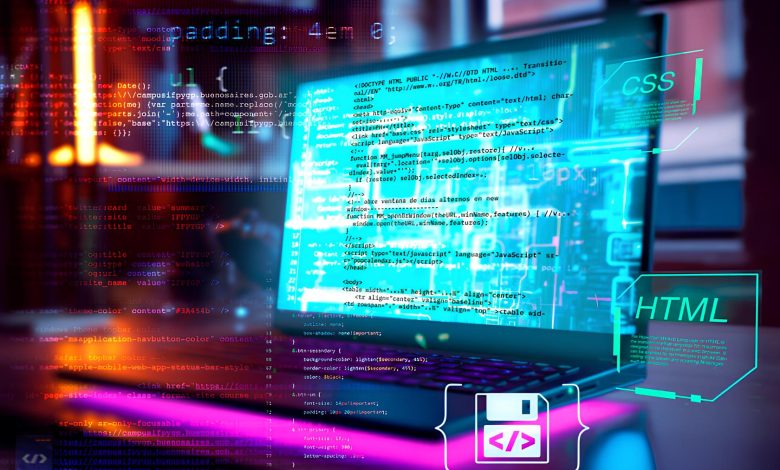Programming

Why Learning Programming Matters Today
In today’s digital world, programming is no longer just a skill for software engineers—it’s becoming a fundamental literacy. Whether you want to build websites, create apps, or automate tasks, coding gives you the power to turn ideas into reality. Yet many beginners feel overwhelmed: Which language should I start with? What tools do I need? Am I too late to learn?
Here’s the good news: programming is like learning a new way of thinking, not just memorizing commands. If you’ve ever solved a puzzle, followed a recipe, or fixed a broken gadget, you already understand the essence of coding—breaking down problems into smaller steps and solving them logically.
In this guide, we’ll walk through everything you need to know to start your coding journey with confidence.
Understanding the Basics of Coding Languages
At its core, programming is about giving instructions to a computer. These instructions are written in special languages, and just like human languages, they have grammar, rules, and vocabulary.
Some of the most common programming languages are:
- Python – beginner-friendly, widely used in web development, AI, and automation.
- JavaScript – the backbone of interactive websites.
- Java – powerful for enterprise systems and Android apps.
- C++ – fast and efficient, often used in games and system-level programming.
Think of a programming language as a translator between you and the machine. When you write code, the computer reads it, processes it, and produces the output you want.
For beginners, Python is often the recommended starting point because it reads almost like English and has a vast community ready to help.
How to Choose Your First Programming Language
Choosing a first language depends on your goals.
- Want to build websites? → Start with HTML, CSS, and JavaScript.
- Interested in data science or AI? → Python is the best path.
- Dreaming of creating mobile apps? → Try Java (Android) or Swift (iOS).
- Passionate about game development? → Learn C# with Unity or C++ with Unreal Engine.
No matter what you choose, remember: the first language you learn won’t be your last. Programming is a transferable skill—once you grasp the basics, learning others becomes much easier.
Step-by-Step Guide: Writing Your First Code
Let’s write the classic “Hello, World!” program in Python:
print("Hello, World!")
This tiny line of code does something powerful—it instructs your computer to display text. From this point, you can move to variables, loops, and functions.
A simple step-by-step approach:
- Install Python from python.org.
- Open a code editor (e.g., VS Code).
- Write your first line of code.
- Run it and see instant results.
The key is practice over theory. Code every day, even if it’s just 10 minutes.
Common Mistakes Beginners Make and How to Avoid Them
When starting, it’s natural to stumble. Here are the most common mistakes:
- Trying to learn too many languages at once → Stick to one.
- Memorizing code instead of understanding logic → Focus on the “why.”
- Skipping debugging → Debugging teaches problem-solving.
- Comparing yourself to experts → Everyone starts from zero.
Tip: Treat mistakes as part of the learning curve. Every error message is a clue that improves your problem-solving skills.
Learning Resources: Books, Courses, and Communities
The internet has endless resources, but you don’t need them all. Start with:
- Books: Automate the Boring Stuff with Python by Al Sweigart
- Online Courses: Codecademy, Coursera, Udemy
- Communities: Stack Overflow, Reddit r/learnprogramming, GitHub
Pro tip: Join a community early. Asking questions, sharing projects, and helping others will accelerate your progress.
Building Your First Small Project
Theory means little without application. Once you know the basics, create something simple:
- A calculator app
- A personal portfolio website
- A to-do list program
- A guessing game
Projects build confidence. They show you how different pieces of code come together, and they make learning fun.
Turning Coding into a Lifelong Skill
Learning programming is like planting a seed—it grows with every line of code you write. At first, it may feel slow, but soon you’ll see patterns, solve bigger problems, and build real-world projects.
The most important step is simply starting. Don’t wait for the “perfect time.” Open your computer, write your first line, and begin the journey.
1. Which programming language should beginners start with?
Most beginners start with Python because it’s simple and versatile.
2. How long does it take to learn programming?
With consistent practice, you can grasp basics in 3–6 months.
3. Do I need math skills to learn programming?
Basic logic is enough to start. Advanced math is only needed for fields like AI or graphics.
4. Can I learn programming without a computer science degree?
Yes! Many professional developers are self-taught.
5. How do I stay motivated while learning programming?
Set small goals, build projects, and join supportive communities.